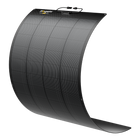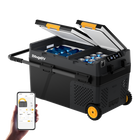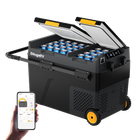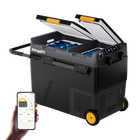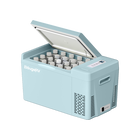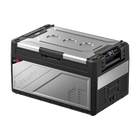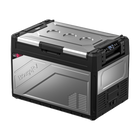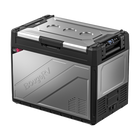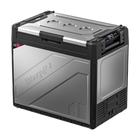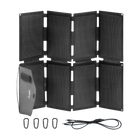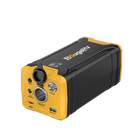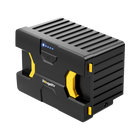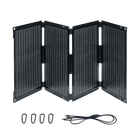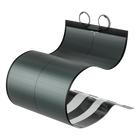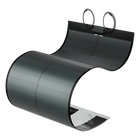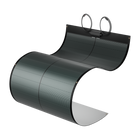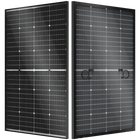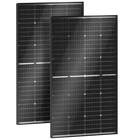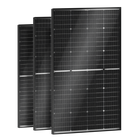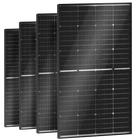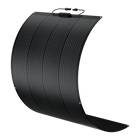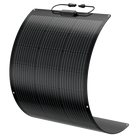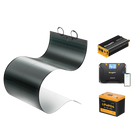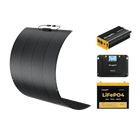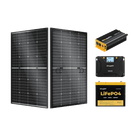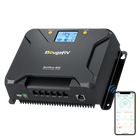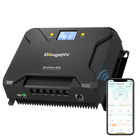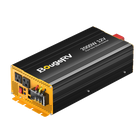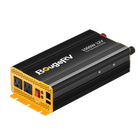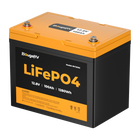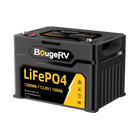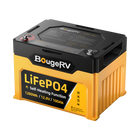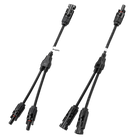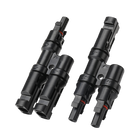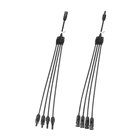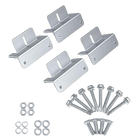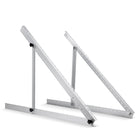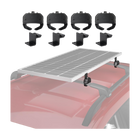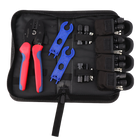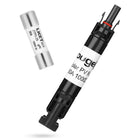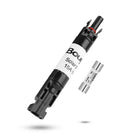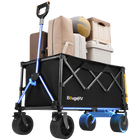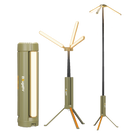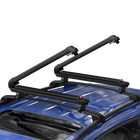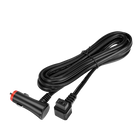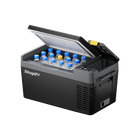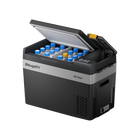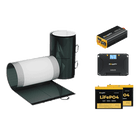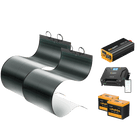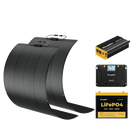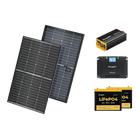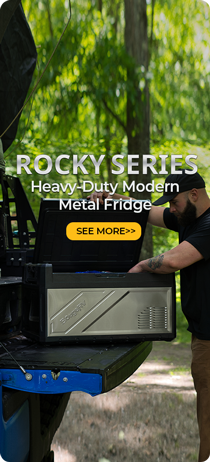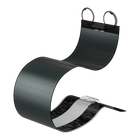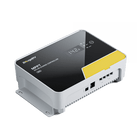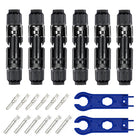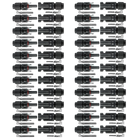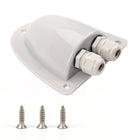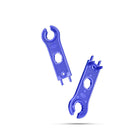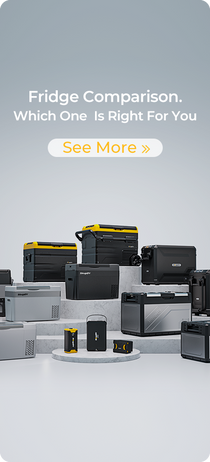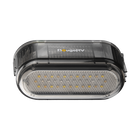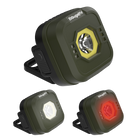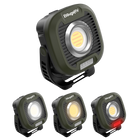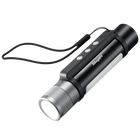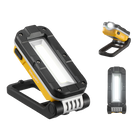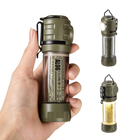What are CIGS Solar Panels, Why are They Favored?

You may already know a lot about crystalline solar cells, but do you know something about the CIGS flexible solar panel? CIGS is a powerful and versatile material. And the world records for thin-film efficiency are all held by CIGS. It opens up the possibility of the Holy Grail in solar energy: silicon-like efficiency at low thin-film cost.
If you're coming for it, lucky! This article will tell you all you should know about CIGS solar panels. Without further ado, get to the point right now!
- What are CIGS solar panels?
- How does a CIGS solar cell work?
- Typical applications of CIGS solar panels
- Why flexible solar
- Technological advantages of CIGS panels
- CIGS V.S. Mono-crystalline Silicon solar panels
- Why choose BougeRV
- Conclusion
- FAQ
What are CIGS solar panels?
CIGS solar panels stand for copper indium gallium selenide solar cells (or CIGS cells, sometimes referred to as CI(G)S or CIS cell) is a thin-film solar cells used to convert sunlight into electric power. CIGS is a highly stable, high-performance, and mature thin-film photovoltaic technology.
This type of solar cell is especially suitable for applications on buildings, roofs, transport vehicles, or mobile equipment.
How does a CIGS solar cell work?
CIGS solar cell stands for copper indium gallium selenide solar cell, a thin-film solar cell used to convert solar energy into electricity. Just like crystalline solar panels, CIGS flexible panels also convert sunlight into electricity by absorbing sunlight. The good news is that the efficiency of flexible panels is now comparable to that of rigid solar panels.
Typical applications of CIGS solar panels
With its high efficiency and wide applicability, CIGS technology has become very popular for its applications. We will go on to talk about the appliance and how the CIGS solar panels work in these places.
Solar cells
Use CIGS solar technology to make the solar cells; they are sealed, durable, and lightweight in a polymer sheet that gives the shingle its shape and color. It provides the possibility for your family. Generate solar energy without installing a conventional rooftop PV system, and enjoy renewable energy while maintaining aesthetics.
Utility Scale
CIGS technology is becoming increasingly popular for utility-scale applications, taking into account cost, efficiency, and reduced losses due to temperature. Power output, durability, and other aspects make it a better investment.
Rooftop installation
While crystalline silicon modules are the most common technology for rooftop installations, many homeowners choose CIGS PV modules. CIGS technology performs better in climates with extreme temperatures due to its ability to absorb light better in extreme environments and weak lighting environments. It is also suitable for use on RV roofs. When you're driving your RV through the woods, CIGS can still work well. There will be no problem with shade occlusion.
Flexible solar photovoltaic modiles
In fact, CIGS technology is the best choice for manufacturing flexible photovoltaic modules. These panels can be adapted to strange shapes, curved roofs, or the sides of buildings, providing the ability to generate electricity using PV modules that adapt to the shape of the surface.
Why flexible solar
Flexible
· Can fit around curved structures.
· Can be integrated into materials.
Stable Output
. Stay a stable output even in poor light conditions due to the advantage of the series-parallel combination of its components.
IP68 waterproof
. You can use it without any concerns in a wet environment outdoor and get a relatively stable output.
Lightweight
· No retrofitting required.
· Can be used in applications such as consumer goods where weight is a concern.
Durable
· Won't break / Resistant to vandalism.
· No risk of microcracks to cells.

Technological advantages of CIGS panels
Low-temperature coefficient: When exposed to high temperatures, CIGS efficiency does not decrease as quickly as silicon panels, making it excellent for use in the fast-growing solar markets. CIGS PV remains a high-yield technology even in less-than-ideal situations, thanks to its exceptional performance in diffuse light conditions.
High absorption: This direct-bandgap material can absorb a large amount of the solar spectrum, making it the most efficient thin-film technology available.
Tandem design: Due to the configurable bandgap, tandem CIGS devices are possible.
Protective buffer layer: Grain boundaries act as a protective buffer layer, preventing surface recombination and permitting the use of films with grain sizes of less than 1 micron in device production.
CIGS V.S. Mono-crystalline Silicon solar panels
|
CIGS solar panels |
Mono-Crystalline solar panels |
|
|
Shadow effect |
Low effect on the production |
Huge effect on the production |
|
Elements usage |
Copper Indium Gallium and Selenide |
Based on Silicium |
|
Flexibility |
Very flexible |
Not so flexible |
|
Micro cracks |
Low effect |
Huge effect |
|
Durability |
Easy to carry |
don't like transportation |
|
Thickness |
1 - 2 µm |
160 - 190 µm |
Why choose BougeRV
Quality made in Ameica
Our CIGS flexible solar panel cooperates with MiaSolé, a manufacturer of lightweight, flexible, and robust solar cells and cell manufacturing equipment. All our flexible board products are made by MiaSolé. Good quality and buy with peace of mind.
Great efficiency
Compared to other thin-film technologies, CIGS modules offer superior efficiency. High-performance modules based on CIGS technology are already comparable to the efficiency of polycrystalline solar modules.
Lightweight&portable
We provide the most lightweight and convenient flexible solar panel on the market. The CIGS flexible solar panel weighs only 1.84kg, only 1/4 of a rigid solar panel. And it can be easily rolled and carried to anywhere you want.
Satisfied with all your need
Whether you need to use or design it externally, we can meet your needs. Flexible, lightweight solar modules using this technology are particularly suitable for roofs and facades of buildings, greenhouses, transportation vehicles, airships, and portable electronic devices.

Conclusion
Think about the future of CIGS flexible solar panels. CIGS is one of the most versatile and high-performance thin-film technologies. Plus there are many possibilities for its future. We provide you with the most effective and strong solar solution in the world. And contact us if you meet any problems when buying. BougeRV is by your side as you explore solar power.
FAQ:
Are CIGS solar panels worth it?
CIGS technology has now become more visible for you guys. It has more and more potential to be mainstream solar technology in the future and might reduce its costs. CIGS technology requires fewer materials and fits more surfaces and more places to carry. So, getting a CIGS solar panel will be a smart investment.
What does CIGS stand for in solar?
CIGS solar cell stands for copper indium gallium selenide solar cell, the thin-film photovoltaic device that uses CIGS technology to absorb sunlight and convert it into electricity. It performs well even in winter through materials that absorb sunlight more efficiently.
How do I need to install this solar panel?
Tear off the protection tape behind the solar panel, and then stick the solar panel to the ground.
What can my Flexible Solar Panels power?
Flexible solar panels can power cell phones, laptops, and other portable electronic gadgets. Flexible Solar Panels are ideal for keeping 12V batteries charged and prepared for use whenever you need them. Your boat, automobile, RV, or ATV can be started for the first time by connecting to one of our waterproof panels.






